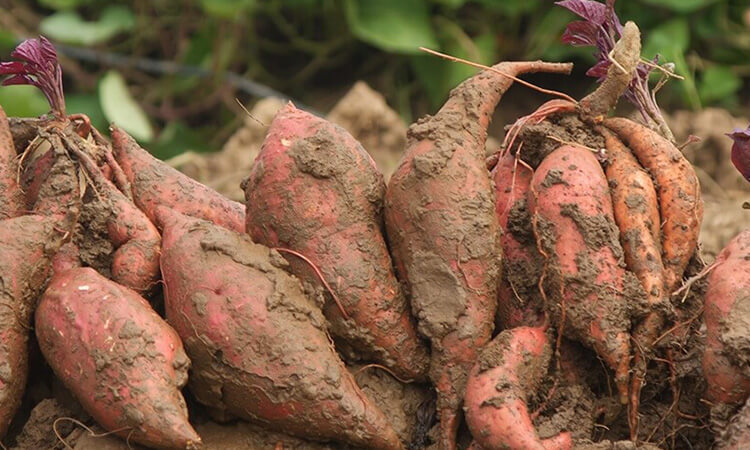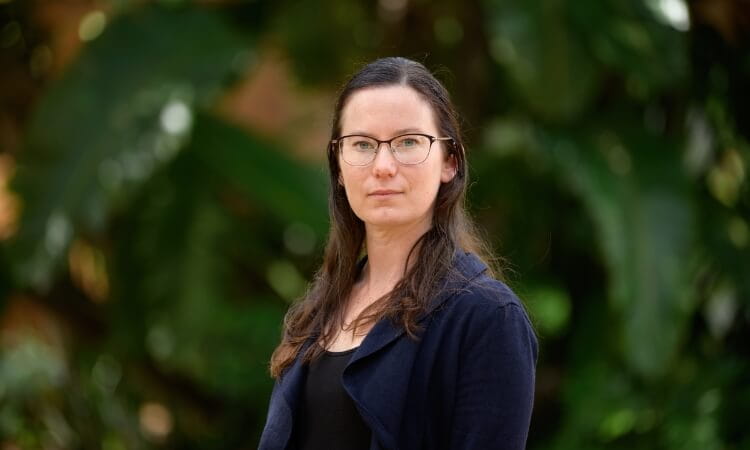The biocontrol trial/experiment has the potential to reduce chemical use and eliminate specific pest problems in a variety of Australian horticulture crops.
Research Fellow with the Centre for Crop Health, Dr Bree Wilson, is using a basic yet effective method to grow and distribute Metarhizium anisopliae and Beauveria bassiana fungus into the soil so it can attack and kill a weevil that makes sweet potato inedible.
"One little nibble from this weevil causes the plant to create a compound that makes the sweet potato root unpalatable to us," she said.
“In more developed countries producers would put chemical through their irrigation system for the entire cropping season, so in PNG where all farmers are small scale and chemicals aren’t easy to use or access and education on correct and safe usage through the entire supply chain is a concern - it is a massive problem.”
Under the Australian Centre for International Agricultural Research’s “Developing improved crop protection options in support of intensification of sweet potato production in Papua New Guinea” project; a team lead by Charles Sturt University and involving the University of Southern Queensland, PNG University of Technology, PNG’s National Agricultural Research Institute and Fresh Produce Development Agency is working to improve land and crop management to decrease pest attacks, encourage the use of clean planting material and utilise biological control.
The two-million-dollar project that started in 2016 was focused on improving the commercialisation of sweet potatoes to bolster food security for the island nation.
“Without sweet potato, Papua New Guinea would experience widespread famine so it’s critical we come up with suitable and effective solutions to control these insects,” Dr Wilson said.
Dr Wilson identified a pathogenic “insect-killing” fungus that lives in soil all over the world and worked out how to remove it and mass produce it on rice.
“These fungi need the weevil insect as a food source to complete its life cycle, once one of its spores’ lands on an insect it will stick and germinate,” she said.
“It enters the body through a gap in the leg, wing or mouthparts and then it grows throughout the body consuming the insect’s nutrients until it kills the host.”
The fungus is collected from the soil using DNA technology to identify it, it’s then grown in a broth in the laboratory and inoculated onto rice, which is then put onto the soil around the sweet potato plant.
Trials of locally isolated strains of the fungus are underway in collaboration with PNG’s Unitech team in both the highlands and lowlands.
“The best thing is that we are harnessing what naturally occurs in the soil to kill the insects; unlike with the use of chemicals there’s no withholding period or residue issues, it’s green, sustainable and very effective,” Dr Wilson said.
“Left, right and centre chemicals that growers have used to control insects are being knocked off the market - this biocontrol fungus has the potential to replace those chemicals even for conventional/non-organic growers until alternative chemicals are registered.
“It’s going to be a really important tool in the box for integrated pest management programs.”



